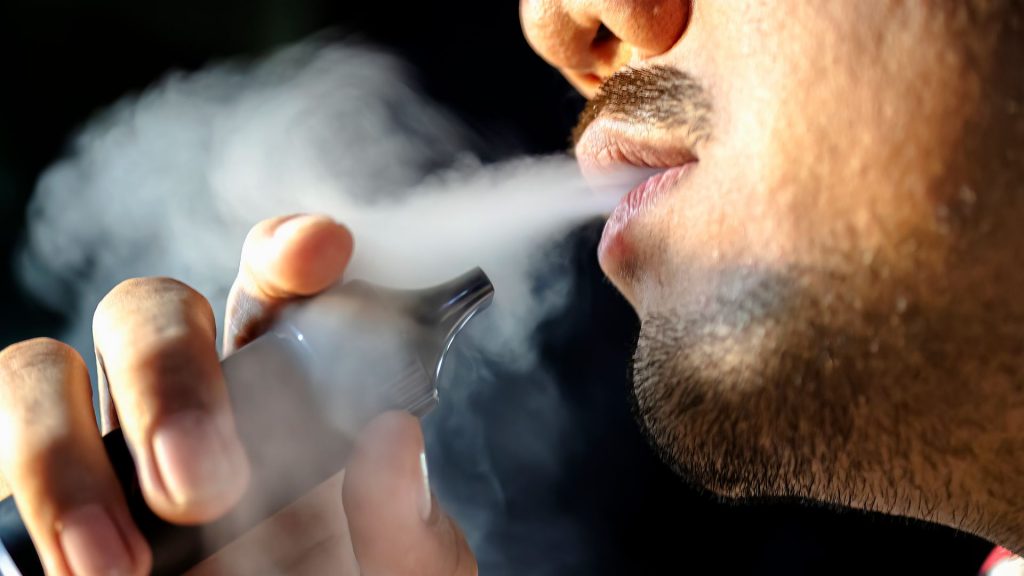SCOTUS upholds FDA’s block against vape companies selling fruity products
Ella Greene April 3, 2025 0
- The Supreme Court sided with the FDA in blocking the sale of fruit and dessert-flavored vapes, overruling a Louisiana Appeals Court decision. The Court emphasized the FDA’s responsibility to protect public health, particularly from products that appeal to young people.
- The FDA’s decision was based on scientific evidence showing flavored products are more likely to attract minors.
- The ruling sends the case back to the Appellate Court for further review.
Full Story
The Supreme Court ruled in favor of the Food and Drug Administration (FDA) Wednesday, April 2, in a case involving vapes, e-cigarettes and their flavored products.
Supreme Court rules in favor of FDA
In a unanimous vote, the Court overturned a Louisiana Appeals Court ruling that had struck down the FDA’s denials of marketing applications. Two vaping companies argued that the FDA had changed the rules they had to follow when submitting marketing requests.
Justice Samuel Alito wrote the FDA based its actions on scientific evidence, focusing on whether the products would appeal to younger individuals. He said, “One of the FDA’s longstanding responsibilities, dating back nearly a century, is to determine whether manufacturers may market new drugs.”
The FDA has only approved tobacco or menthol-flavored products because they are less likely to entice kids. However, many stores still sell these flavored products illegally.
The justices agreed the FDA lawfully blocked advertisements for two vaping companies selling fruit and dessert-flavored nicotine products. Campaign for Tobacco-Free Kids praised the ruling, saying that flavors like “Killer Kustard Blueberry” and “Suicide Bunny Mother’s Milk and Cookies” are a clear attempt to draw in kids.
In a statement, Yolonda C. Richardson, the organization’s president and CEO said, “This ruling is significant because the FDA has similarly denied marketing applications for over 26 million flavored e-cigarette products based on the overwhelming evidence that flavored products appeal to kids and pose significant risks to their health.”
The Court sent the case back to the Appellate Court, urging the judge to consider another review of the facts.
Tobacco Control Act of 2009
The FDA based its main argument on the Tobacco Control Act, which considers whether existing tobacco users will eventually quit and the likelihood of new users picking up these products for the first time. According to the Supreme Court, the 2009 law prohibits “a manufacturer from marketing any ‘new tobacco product’ without FDA authorization.”
Manufacturers of the products argue the FDA is unfairly blocking their flavored items after they spent millions to comply with regulations.
Statistics of kids using e-cigarettes
Concerns over more kids turning to vapes have grown in recent years. In 2018, the surgeon general declared vaping among teens a public health epidemic. At the time, the Centers for Disease Control and Prevention (CDC) reported 27%, or 4 million high school students, said they used a tobacco product. E-cigarette use rose by 77.8% among high schoolers and 48.5% among middle school students.
Fast forward to 2024, and the CDC reaffirmed that minors use vapes more than any other tobacco product, with 87% of students using flavored ones. However, vaping appears to be declining, with 1.6 million kids now using e-cigarettes.
The justices told the companies they could submit a new application along with scientific evidence showing that the benefits of their tobacco products outweigh the potential risks.
Related Stories
Ella Rae Greene, Editor In Chief
Ella Greene
Ella and the staff at Clear Media Project (CMP) curate these articles.
Unless otherwise noted CMP does not write these articles.
The views, thoughts, and opinions expressed in the articles published on this blog belong solely to the original authors and do not necessarily reflect the views of the blog owner. The blog owner does not claim ownership of the content shared by contributors and is not responsible for any inaccuracies, errors, or omissions.
All rights and credits goes to its rightful owners. No Copyright Infringement is intended. If you believe any content infringes on your rights, please contact us for review and potential removal.





